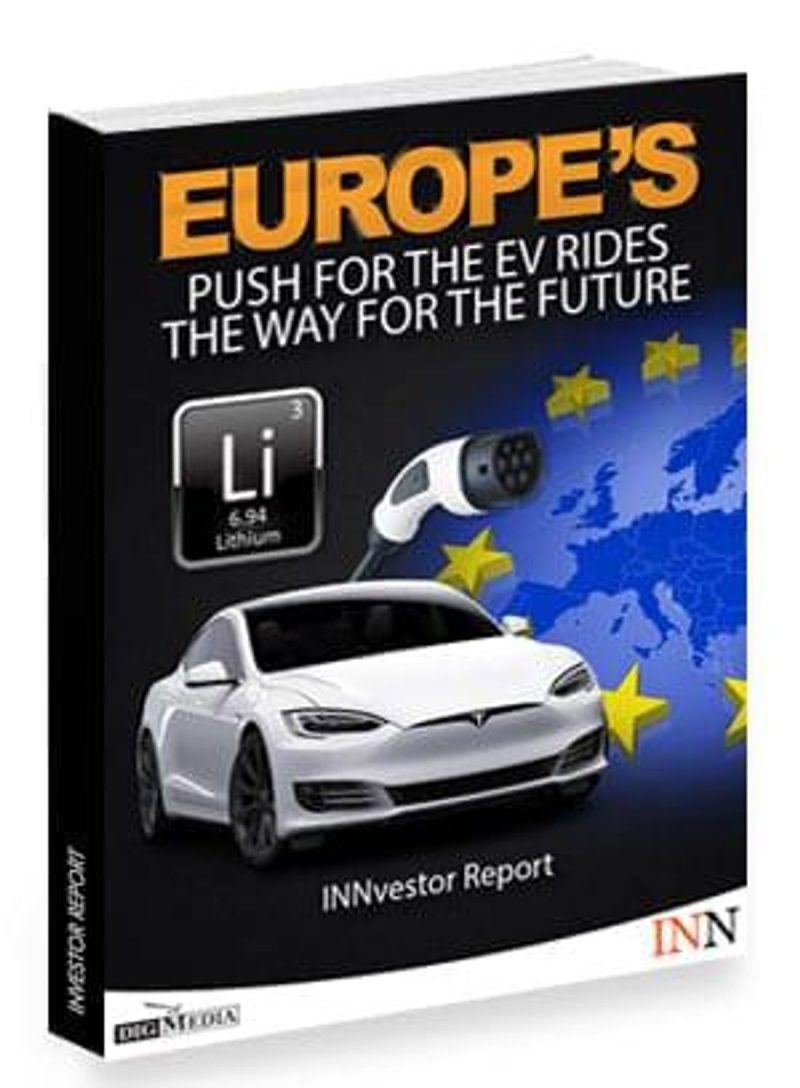Europe's Electric Revolution Paving the Way to a Greener Future
 Europe’s Push For EV Rides The Way For The Future
The European Union has taken significant steps towards promoting electric vehicles (EVs) as part of its efforts to reduce greenhouse gas emissions and combat climate change. The push for EVs in Europe is not only driven by environmental concerns but also by the desire to reduce dependence on fossil fuels and promote sustainable transportation options. This shift towards EVs is paving the way for a cleaner and more sustainable future for the continent. Here are some key factors driving Europe's push for EVs and how it is shaping the future of mobility in the region.
Regulatory Initiatives
One of the main drivers behind the push for EVs in Europe is the series of regulatory initiatives put in place by the European Commission to accelerate the adoption of zero-emission vehicles. These initiatives include emissions regulations that set strict limits on the amount of CO2 that can be emitted by vehicles sold in the EU. Automakers are required to meet these targets by producing a certain percentage of electric vehicles in their fleet. This has incentivized automakers to invest in EV technology and develop more electric models to meet regulatory requirements.
Charging Infrastructure
Another key factor contributing to the advancement of EVs in Europe is the development of a robust charging infrastructure. The European Commission has allocated significant funding to support the deployment of charging stations across the continent, making it easier for EV owners to charge their vehicles and travel long distances without range anxiety. The growth of fast-charging networks along highways and in urban areas has significantly improved the accessibility and convenience of EVs, making them a more viable option for consumers.
Consumer Demand
Consumer demand for electric vehicles in Europe has been steadily increasing in recent years, driven by growing awareness of environmental issues, improvements in EV technology, and the availability of government incentives and subsidies. Many European countries offer financial incentives to encourage consumers to purchase electric vehicles, such as reduced purchase prices, tax credits, and exemptions from congestion charges. This has made EVs more affordable and attractive to a wider range of consumers, leading to a surge in EV sales across the continent.
Collaboration and Innovation
The push for EVs in Europe has also been bolstered by collaboration between governments, automakers, and other stakeholders to drive innovation in the electric vehicle industry. European countries have set ambitious targets to phase out internal combustion engine vehicles and transition to electric mobility over the coming decades. This has spurred investment in research and development of new technologies, such as advanced batteries, charging solutions, and vehicle-to-grid integration, to make EVs more efficient, reliable, and cost-effective.
Environmental Benefits
By promoting the adoption of electric vehicles, Europe aims to reduce carbon emissions from the transportation sector and improve air quality in its cities. EVs produce zero tailpipe emissions, reducing greenhouse gas emissions and harmful pollutants that contribute to air pollution and respiratory diseases. Switching to electric mobility can help Europe meet its climate goals, improve public health, and create a more sustainable and livable urban environment for its citizens.
Overall, Europe's push for electric vehicles is driving a transformation in the transportation sector and paving the way for a cleaner, greener future. By investing in regulatory initiatives, charging infrastructure, consumer incentives, collaboration, and innovation, the continent is positioning itself as a leader in sustainable mobility and setting an example for the rest of the world to follow. With continued support and commitment from policymakers, businesses, and consumers, electric vehicles are poised to play a central role in shaping the future of transportation in Europe and beyond.
Europe’s Push For EV Rides The Way For The Future
The European Union has taken significant steps towards promoting electric vehicles (EVs) as part of its efforts to reduce greenhouse gas emissions and combat climate change. The push for EVs in Europe is not only driven by environmental concerns but also by the desire to reduce dependence on fossil fuels and promote sustainable transportation options. This shift towards EVs is paving the way for a cleaner and more sustainable future for the continent. Here are some key factors driving Europe's push for EVs and how it is shaping the future of mobility in the region.
Regulatory Initiatives
One of the main drivers behind the push for EVs in Europe is the series of regulatory initiatives put in place by the European Commission to accelerate the adoption of zero-emission vehicles. These initiatives include emissions regulations that set strict limits on the amount of CO2 that can be emitted by vehicles sold in the EU. Automakers are required to meet these targets by producing a certain percentage of electric vehicles in their fleet. This has incentivized automakers to invest in EV technology and develop more electric models to meet regulatory requirements.
Charging Infrastructure
Another key factor contributing to the advancement of EVs in Europe is the development of a robust charging infrastructure. The European Commission has allocated significant funding to support the deployment of charging stations across the continent, making it easier for EV owners to charge their vehicles and travel long distances without range anxiety. The growth of fast-charging networks along highways and in urban areas has significantly improved the accessibility and convenience of EVs, making them a more viable option for consumers.
Consumer Demand
Consumer demand for electric vehicles in Europe has been steadily increasing in recent years, driven by growing awareness of environmental issues, improvements in EV technology, and the availability of government incentives and subsidies. Many European countries offer financial incentives to encourage consumers to purchase electric vehicles, such as reduced purchase prices, tax credits, and exemptions from congestion charges. This has made EVs more affordable and attractive to a wider range of consumers, leading to a surge in EV sales across the continent.
Collaboration and Innovation
The push for EVs in Europe has also been bolstered by collaboration between governments, automakers, and other stakeholders to drive innovation in the electric vehicle industry. European countries have set ambitious targets to phase out internal combustion engine vehicles and transition to electric mobility over the coming decades. This has spurred investment in research and development of new technologies, such as advanced batteries, charging solutions, and vehicle-to-grid integration, to make EVs more efficient, reliable, and cost-effective.
Environmental Benefits
By promoting the adoption of electric vehicles, Europe aims to reduce carbon emissions from the transportation sector and improve air quality in its cities. EVs produce zero tailpipe emissions, reducing greenhouse gas emissions and harmful pollutants that contribute to air pollution and respiratory diseases. Switching to electric mobility can help Europe meet its climate goals, improve public health, and create a more sustainable and livable urban environment for its citizens.
Overall, Europe's push for electric vehicles is driving a transformation in the transportation sector and paving the way for a cleaner, greener future. By investing in regulatory initiatives, charging infrastructure, consumer incentives, collaboration, and innovation, the continent is positioning itself as a leader in sustainable mobility and setting an example for the rest of the world to follow. With continued support and commitment from policymakers, businesses, and consumers, electric vehicles are poised to play a central role in shaping the future of transportation in Europe and beyond.
If you would like to delve into the world of investment topics , go to our partner project Wall Street Wizardry


